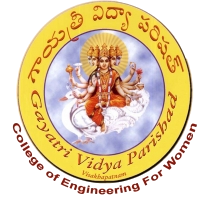1.3.1. Institution integrates crosscutting issues relevant to Professional Ethics, Gender, Human Values, Environment and Sustainability into the Curriculum
The courses Professional ethics and human values are integrated into the curriculum by the affiliating university. In addition the crosscutting issues like Gender sensitation, environment and sustainability are integrated through NSS unit and Eco-tech club. The details are in Table 1 and Table 2.
Table 1. Professional Courses structured in the curriculum of JNTUK.
| Course Name | Branch | R13 Regulation | R16 Regulation |
|---|---|---|---|
| Year / Semester | Year / Semester | ||
| Professional ethics and human values | EEE | Ist Year/ Ist Sem. | IIIrd Year/ IInd Sem. |
| ECE | IIIrd Year/ Ist Sem. | ||
| CSE | Ist Year/ IInd Sem. | ||
| IT | |||
| Environmental studies | EEE | IInd Year/ IInd Sem. | Ist Year/ Ist Sem. |
| ECE | IInd Year/ Ist Sem. | Ist Year/ IInd Sem. | |
| CSE | Ist Year/ Ist Sem. | ||
| IT |
- Two hours in a week are allotted for the Professional ethics and human values course. The course is divided into 6 units namely, Human values, Principles for Harmony, Engineering Ethics and Social Experimentation, Engineers’ Responsibilities towards Safety and Risk, Engineers’ Duties and Rights and Global Issues- Globalization, business ethics, media ethics, computer ethics, bioethics, and Cross Culture Issues.
- The aim of the course is to recognize the significance of human values, ethics, and morals and to motivate the students to practice ethical behavior in day to day activities. The courses discuss the details of how a professional should behave while he is there with the organization. It also teaches the transition from personal ethics to professional ethics and details about morals and values and how they contribute to professional ethics. The course also discusses the role of human relations and values as well.
- The College conducts neighborhood community activities through the NSS dept. The extension activities organized by the College as part of NSS activities, enhance the students’ academic learning experiences and inculcate the values and skills in them. Teamwork, Leadership Skills, and Effective Decision Making are just a few things students learn while participating in and organizing various programs under the extension activities.
- Environmental education and sustainability inclination are induced into students by arranging visits and tours to industry and other important sites. Besides all these, several theme-specific competitions such as poster presentations, paper presentations, and other activities are planned to instill the competitive spirit and sensitization on these topics. This enables the students to learn about the ecosystem and other environmental factors. They also learn measures to protect the environment and are made aware of global warming, recycling and disposable of no-degradable and hazardous materials and other related issues.
Table 2. Some of the Workshops/Activities carried out to address crosscutting issues
| Organizing Body | Month & Year | Activity Name | No. of Participants |
|---|---|---|---|
| GVPCEW NSS Unit | August 2019 | Tree Plantation | 30 |
| September 2019 | Swatch-Bharat Clean Campus-Clean India | 30 | |
| September 2019 | Plastic Waste reduction Camping | 60 | |
| December 2019 | Special Camp to Sambuvanipalem | 35 | |
| GVPCEW Echo-Tech Club | June 2016 | Sapling Plantation Drive | 50 |
| July 2018 | Power Point on "Effective methods to reduce Plastic Usage" | 46 | |
| September 2018 | Poster Presentation on "Effective methods to reduce Plastic Usage" | 20 | |
| December 2019 | Wealth out of Waste | 32 | |
| December 2019 | Power Point on "Emerging technologies on Control of Pollution" | 49 |
| 1.3.1 |
1.3.2. Average percentage of courses that include experiential learning through project work/field work/internship during last five years
Response: 49.33
1.3.2.1 Number of courses that include experiential learning through project work/field work/internship year-wise during last five years
| 2020-21 | 2019-20 | 2018-19 | 2017-18 | 2016-17 |
|---|---|---|---|---|
| 127 | 158 | 151 | 146 | 132 |
1.3.3. Percentage of students undertaking project work/field work/ internships (Data for the latest completed academic year)
Response: 29.53
1.3.3.1 Number of students undertaking project work/field work / internships
Response: 424
